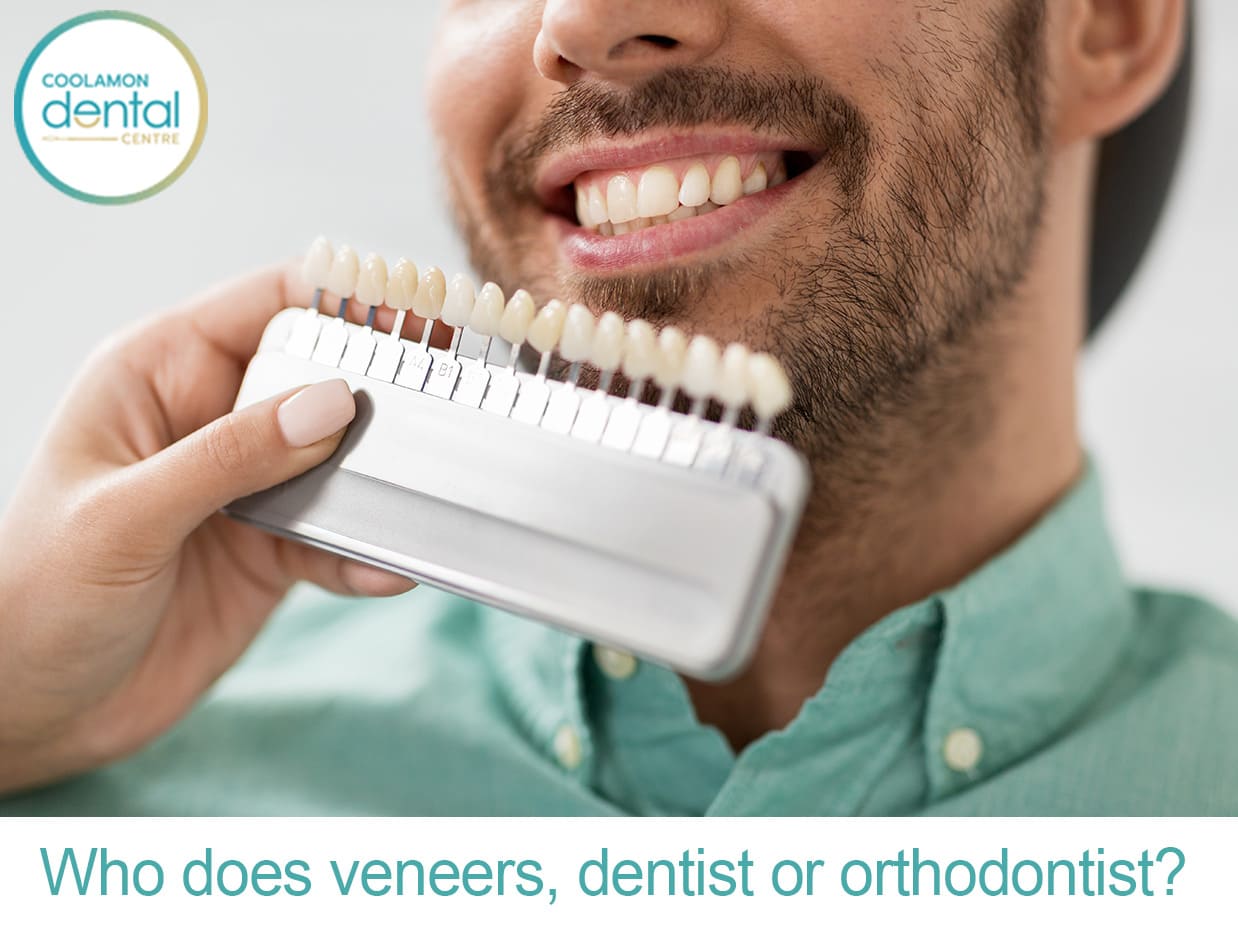The treatment of veneers is generally always performed by a dentist. In general, an orthodontist is a professional who focuses primarily on orthodontic treatments.
Suppose you’re looking to correct crooked teeth; you’ll find a range of available choices. The choices range from invisalign Ellenbrook or lingual braces to treat crooked teeth invisibly to the Inman aligner to realign crooked teeth swiftly and up to traditional fixed orthodontics to rectify the most severely crooked teeth. Check out the affordable dentist in Ellenbrook for more info.

But did you know that there are other, less invasive options for straightening a few misaligned front teeth?
Dental bonding and dental veneers can also be used to provide the illusion of straighter teeth, but who does this procedure? Is it better to see a dentist or an orthodontist?
When it comes to aesthetic dentistry and orthodontics, there is a distinction to be made.
Orthodontics is frequently divided into two categories:
- Functional orthodontics – This form of orthodontic treatment is used when the teeth don’t bite together correctly or a significant malocclusion, which causes additional issues such as jaw joint discomfort, headaches, or the inability to eat and chew. This therapy may or may not include aesthetic components.
- Cosmetic orthodontics: This form of orthodontic treatment is primarily motivated by a desire to straighten and improve the appearance of the teeth; it may or may not include functional features.
When it comes to cosmetic dentistry, it’s often thought of as a treatment method in which we strive to improve the appearance of a patient’s teeth while keeping the function in mind.
Cosmetic dentistry offers a variety of procedures that can be utilised to meet that need. Some examples of treatments include:
- Crooked teeth straightening
- Teeth that have been worn down or damaged are being rebuilt.
- whitening teeth that are discoloured
As you can see, one of the procedures done in cosmetic dentistry is to correct crooked teeth. And orthodontics might be a part of that.

How can veneers straighten crooked teeth?
High-strength porcelain and composite resin are two materials that can be used to make dental veneers. Most of the time, veneers do not truly straighten the teeth; nonetheless, they create the impression of straightness when viewed from the front.
When only a few teeth are crooked, straightening your teeth with a veneer is typically the best option.
Looking at this view from the front, you can see that the 2nd tooth from the centre’s right-hand side is turned in and malformed.
An instant dental veneer made of composite resin was a straightforward approach to fix these deformed and crooked teeth. This procedure is an immediate consequence. Even if the tooth had been relocated with orthodontics, it would have been malformed, necessitating bonding to get the desired aesthetic effect.
How are veneers applied?
Half a millimetre of enamel is removed from each tooth that will be covered by the veneer when it is prepared for veneer attachment. This allows for more room for the veneer to fit and ensures that the veneer does not seem to be larger than the tooth it covers.
An anaesthetic is given to the patient before the enamel is removed to help with comfort. After that, an imprint is taken to guarantee that the dental lab creates the veneers with the exact proportions and dimensions needed for a perfect fit. Until the new personalised veneers come from the dental lab, temporary veneers are used. The procedure typically takes two to three weeks.
Can I get veneers?
The majority of individuals are good candidates for dental veneers, but it’s essential to realise that this is a cosmetic procedure, not an orthodontic one. Veneers will not fix teeth that are significantly misaligned, overbites, or underbites.
Veneers must also be attached to healthy teeth. Before the placement of veneers, any decay or gum disease must be addressed.
Veneers are not an option if you grind your teeth; a condition is known as bruxism. Teeth grinding can cause veneers to shatter, crack, or even detach from the tooth altogether.
Veneers can be the cosmetic solution for:
- Spaces between your teeth
- Teeth that are damaged, chipped, or fractured
- Teeth that are discoloured or stained
- Teeth that are crooked or oddly formed
- Fillings that are visible and visually unappealing
To determine your appropriateness and discuss treatment choices, make an appointment with your dentist.
How to make your dental veneers last as long as possible?
Veneers are an excellent approach to improve your smile, but they must be carefully cared for and maintained. Otherwise, you may have to deal with costly repairs or replacements regularly.
Dental veneers may last anywhere from 10 to 20 years with good maintenance, but what does “good care” entail? Here’s what you should do to ensure that your dental veneers endure as long as possible and that you receive the most value for your money.
In conclusion, orthodontics may be aesthetic, and cosmetic dentistry can involve orthodontics as part of a treatment plan for a new smile design.
Reference:
CURRY, F.T. (1998), Porcelain Veneers: Adjunct or Alternative to Orthodontic Therapy. Journal of Esthetic and Restorative Dentistry, 10: 67-74. https://onlinelibrary.wiley.com/doi/10.1111/j.1708-8240.1998.tb00340.x
Nuray Çapa, O⌈zlem Malkondu, Ender Kazazoğlu, Senih Çalikkocaoğlu, Evaluating factors that affect the shade-matching ability of dentists, dental staff members and laypeople, The Journal of the American Dental Association, Volume 141, Issue 1, 2010, Pages 71-76, ISSN 0002-8177, https://doi.org/10.14219/jada.archive.2010.0023.
R. Duane Douglas, Tad J. Steinhauer, Alvin G. Wee, Intraoral determination of the tolerance of dentists for perceptibility and acceptability of shade mismatch, The Journal of Prosthetic Dentistry, Volume 97, Issue 4, 2007,
Pages 200-208, ISSN 0022-3913, https://doi.org/10.1016/j.prosdent.2007.02.012.
Related Articles:
